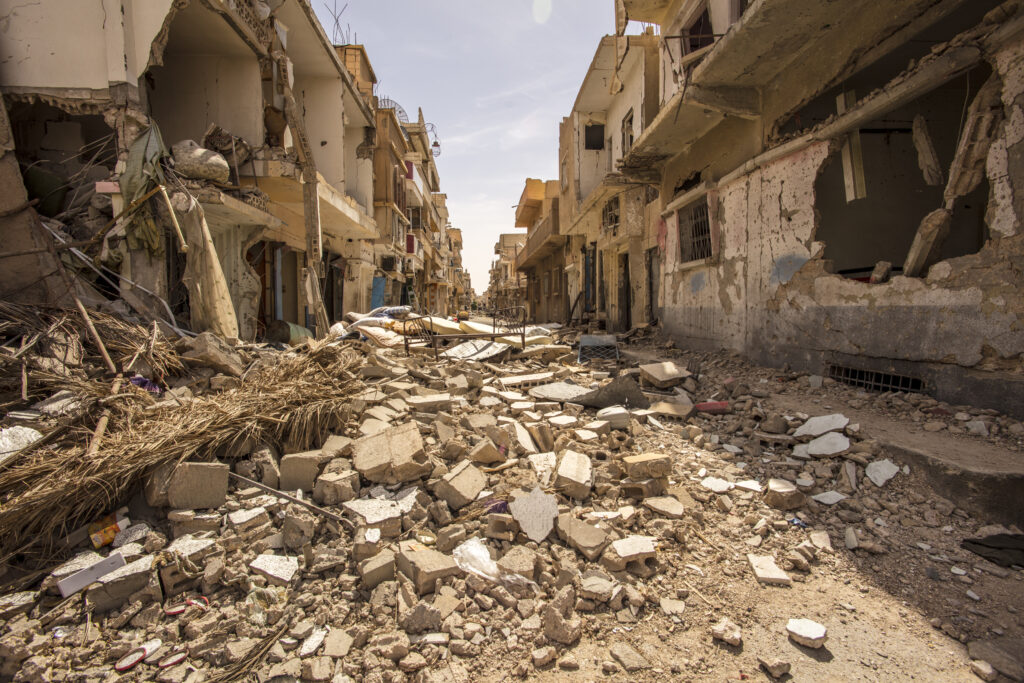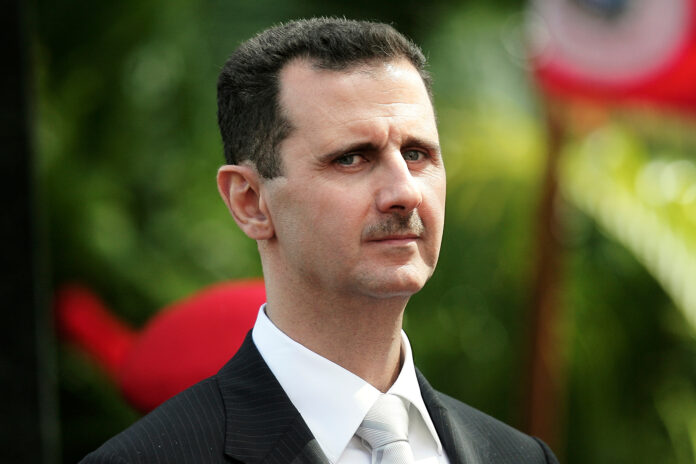Syrian president Bashar Al Assad has been almost entirely rehabilitated at an official level in the Arab world after Arab League foreign ministers adopted a decision yesterday to readmit Syria after more than a decade of suspension.
Assad has presided over 12 years of war in Syria which has resulted in the estimated deaths of over 500,000 people and the displacement of millions.
The Arab League decision said Syria could resume its participation in Arab League meetings immediately, while calling for a resolution of the Syrian crisis, including the flight of refugees to neighbouring countries and drug smuggling across the region.
It said Jordan, Saudi Arabia, Iraq, Lebanon, Egypt and the Arab League’s secretary-general would form a ministerial contact group to liaise with the Syrian government and seek “step-by-step” solutions to the crisis.
Arab League Secretary-General Ahmed Aboul Gheit said that Assad could attend an Arab League summit scheduled to be held in Saudi Arabia later this month “if he wishes to.”
In response, the Syrian foreign ministry said that Arab states should pursue “an effective approach based on mutual respect,” but also stressed the “importance of joint work and dialogue to undertake the challenges facing Arab countries.”
Only Qatar, a major supporter of the Syrian rebels, said it would not normalise relations with the Syrian government despite its readmission to the league.
Subscribe to our newsletter and stay updated on the latest news and updates from around the Muslim world!
Qatar’s foreign ministry spokesman, Majed al-Ansari, condemned what he called “crimes” by the Damascus government and added that: “We need a real price to be paid to the Syrian people.”
He said Assad’s government must “address the roots of the crisis that led to its boycott, and to take positive steps towards addressing the issues of the Syrian people.”
The Syrian war began in 2011 following widespread protests against the government of President Bashar al-Assad. The protests were part of a wave of uprisings that swept across the Middle East and North Africa, known as the Arab Spring.
The Syrian government responded to the protests with a brutal crackdown, leading to armed opposition groups forming and the conflict escalating into a full-blown civil war. The conflict has since involved various factions, including the Syrian government, opposition forces, ISIS, Al Qaeda and Kurdish forces.
The conflict has been complicated by the involvement of foreign powers, including Russia and Iran (who have supported Assad) and the United States, the UK and several Arab nations including Saudi Arabia and Qatar (which have supported the rebels).
It is generally acknowledged that Bashar al-Assad has won the war in Syria, although the conflict is still ongoing and the situation remains complex and volatile.

The Syrian government, with the support of its allies, has regained control of significant parts of the country, including the major cities of Aleppo, Homs, and Damascus.
However, large parts of the country remain outside of the government’s control, including the province of Idlib in the north, which is currently held by opposition forces. Turkey also has a military presence in northern Syria.
Bashar al-Assad has been in power since 2000, succeeding his father Hafez al-Assad. He belongs to the Alawite sect, a branch of Shiite Islam, which is a minority in Syria and is considered heretical by Sunnis who form the majority of Syrians.
Since 2000, his regime has been accused of widespread human rights abuses, including arbitrary arrests, torture, and extrajudicial killings.
Critics of Assad say the Syrian conflict has been marked by the use of excessive force by the Syrian military, which has led to the deaths of hundreds of thousands of civilians. The United Nations has accused Assad of committing war crimes and crimes against humanity.
His government has been accused of targeting civilian areas and hospitals, as well as using indiscriminate weapons such as barrel bombs. These actions have been condemned by the West and others and have led to sanctions being imposed on Syria.
On the other hand, supporters of the Syrian regime have argued that the conflict in Syria is a fight against terrorism and foreign aggression. They contend that the opposition forces are made up of extremist groups, including ISIS and Al Qaeda.
Assad’s supporters also argue that the Syrian government has been unfairly blamed for the violence and that it is the opposition forces who are responsible for the majority of the atrocities committed during the conflict.



















